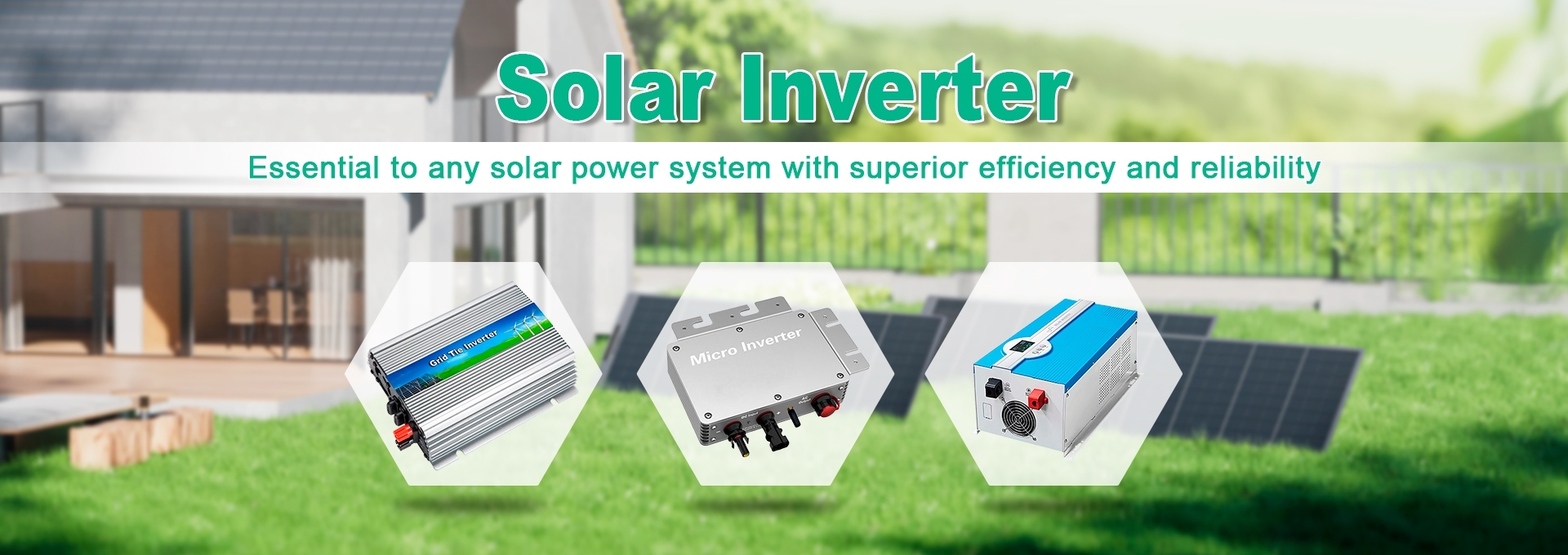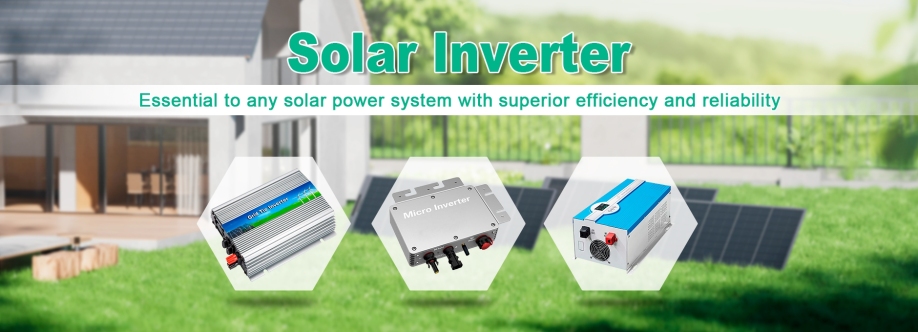

@Micro_Inverter
Groups
Micro Inverters are an important part of a PV power system, especially for inverters less than or equal to 1,000 watts with module-level Maximum Power Point Tracking (MPPT). inverter.com's Micro Inverters occupy an important position in this field, and are favored for their advanced technology, stable performance and wide range of applications. Micro Inverter from inverter.com occupies an important position in this field and is highly favored for its advanced technology, stable performance and wide range of applications. The main feature of the “Micro”, as opposed to the traditional centralized inverter, is the ability to convert the current of each PV module individually, thus increasing the power generation efficiency of the entire system. Traditional centralized inverters work by connecting the DC power generated by multiple PV modules in series and parallel, and then converting the DC power to AC power through a large inverter to connect to the grid. Inverter.com's Micro Inverter adopts a more refined inversion method, i.e., inverting each PV module individually, enabling each module to achieve independent MPPT control, thus optimizing the power generation efficiency of each module and avoiding the common efficiency loss problems of centralized inverters.
The core advantage of inverter.com's Micro Inverter is its ability to control each PV module independently, which greatly improves the overall power generation efficiency of the system. Compared to centralized inverters, inverter.com's Micro Inverter is not subject to the “barrel effect”, which means that the overall efficiency of the system is affected by the poor performance of individual PV modules, thus reducing the power output of the entire system. With inverter.com's Micro Inverter, independent MPPT control at the module level, even if one PV module is underperforming, the others can still operate at optimal levels, greatly reducing system power losses. In addition, inverter.com's Micro Inverter performs well in low light conditions, with a start-up voltage of only 20 volts, allowing the system to continue to operate even in low light conditions, thus increasing the overall power generation of the system. In contrast, traditional centralized inverters typically require a higher start-up voltage and are less efficient in low light conditions. As a result, inverter.com's Micro Inverter offers significant advantages in terms of power generation efficiency and longevity, with a design life of up to 25 years, far exceeding the 10-year lifespan of traditional inverters.
In addition to efficiency, inverter.com's Micro Inverter excels in safety, intelligent management and ease of installation. Traditional centralized inverters typically handle DC voltages of hundreds or even thousands of volts, which increases the risk of fire and makes it difficult to extinguish a fire. Inverter.com's Micro Inverter reduces the risk of fire by limiting the DC voltage to a few tens of volts or less and utilizing a parallel structure to ensure safe operation of the power generation system. In addition, inverter.com's Micro Inverter also features module-level intelligent monitoring, which allows users to view the operating status of each PV module in real time and identify potential problems in a timely manner, thereby improving system maintenance efficiency. In terms of installation, inverter.com's Micro Inverter is compact and lightweight, and can be mounted directly on the PV module or racking without the need for an additional power distribution room, taking up little space and looking good. Meanwhile, due to the parallel structure, users can easily expand the scale of the power generation system without changing the original configuration, which greatly facilitates the maintenance and upgrading in the later stage.
Inverter.com's Micro Inverter is not only widely used in small-scale and household PV power plants, but is also gradually showing its strong market potential in the small and medium-sized commercial and industrial sectors. According to different application requirements, PV inverters can generally be divided into three types: centralized inverters, string inverters and micro inverters. Centralized inverters play an important role in large-scale PV power plants, especially in large-scale power plants of more than 5MW, centralized inverters are the mainstream choice, occupying more than 98% of the global market share.
